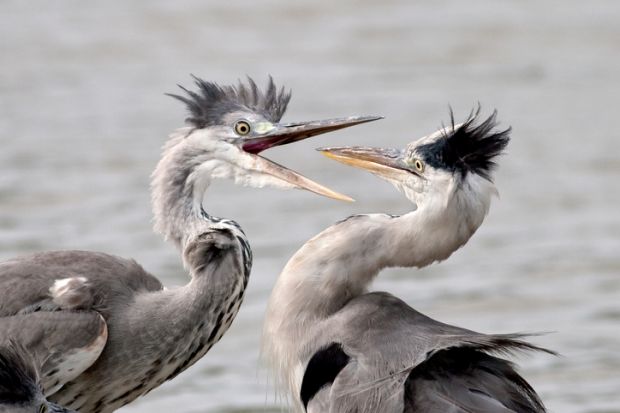An employers’ leader has appealed for understanding from unions after UK university pay negotiations ended without settlement.
Raj Jethwa, chief executive of the Universities and Colleges Employers Association (Ucea), said vice-chancellors had been forced to stand by proposals for a pay freeze in 2020-21 “because it is really difficult for institutions financially, and they face a great deal of uncertainty”.
The main sector union, the University and College Union (UCU), had asked for a rise equivalent to the retail price index – currently 1.2 per cent – plus 5 per cent. Jo Grady, its general secretary, described the proposed pay freeze as “an insult” and said the “extraordinary efforts” of staff during the coronavirus pandemic should be recognised.
The breakdown in negotiations raises the prospect of further industrial unrest after several rounds of strike action linked to pay and other issues in recent years.
Speaking to Times Higher Education, Mr Jethwa said the union’s demand was “just not achievable at all”. UK university finances have been heavily hit by loss of income – including lucrative international student revenue – related to Covid-19 disruption.
“All [we’re] looking for from the unions is a bit of understanding that this is really unusual,” Mr Jethwa said. He indicated that universities would expect to have more leeway in pay negotiations in future if they were able to navigate the current crisis.
Mr Jethwa claimed that Ucea had made concessions on other issues, including setting up a national project to address workloads in the sector and a joint task force addressing pay gaps, and called for the UCU to work towards a deal on pay.
“We absolutely recognise how unusual the current circumstances are, how hard staff have had to work, [and] how this has changed their working conditions,” he said. “We want to get this settled, not only to reduce the impact on costs, but because institutions need to know where they are with their financial situation, and staff salaries are a huge part of that.”
Mr Jethwa said he had learned in his previous roles in the union sector – including at the British Medical Association and the Trades Union Congress (TUC) – that “you have to learn to manage expectations and explain to people what really is achievable, and also what success looks like”.
“I do understand that unions have democratic structures. I just hope members will recognise our arguments about viability and our efforts to try to work with unions in other ways…I would regard any form of industrial action as really unfortunate,” he said.
But Dr Grady said the proposed pay freeze would only make staff “more determined to defend their profession and the future of higher education in the UK”.
“University employers’ decision to give staff yet another real-terms pay cut is a disgrace and a moral stain on the sector. Universities’ student intake and finances have been remarkably resilient throughout the pandemic,” she said. Sector leaders were “refusing to recognise the extraordinary efforts staff have made to provide in-person and online education, or the risks they have faced to their safety”, she said.
“Loose commitments to joint work on casualisation, unmanageable workloads and race and gender inequality are substantially the same as the ones that UCU members rejected last year after their strike action,” Dr Grady said.
Register to continue
Why register?
- Registration is free and only takes a moment
- Once registered, you can read 3 articles a month
- Sign up for our newsletter
Subscribe
Or subscribe for unlimited access to:
- Unlimited access to news, views, insights & reviews
- Digital editions
- Digital access to THE’s university and college rankings analysis
Already registered or a current subscriber? Login








